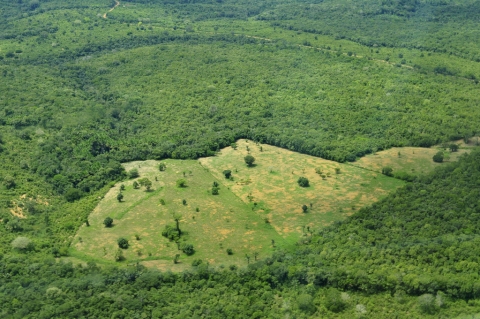
Code for Africa teaches data journalism in Kenya, a world map charts digital bootcamps, handy investigative journalism resources and more from the Knight Fellows in this week’s roundup.
ICFJ Knight Fellows organize Kenya’s first data masterclass
ICFJ Knight Fellows Stephen Abbott Pugh, Chris Roper, Catherine Gicheru and Justin Arenstein worked alongside the Kenya Media Programme and the African Network of Centers for Investigative Reporting (ANCIR) to organize Kenya's first data masterclass for investigative journalists. The three-day workshop equipped local journalists with emerging tools to better track government and private sector activity in areas like corruption reduction, budgeting and public spending. The workshop will continue mentoring participants for three months and provide grants to support promising future investigative projects.
Code for Africa maps out its data bootcamps around the world and launches a MOOC
The Code for Africa team, led by Arenstein, has been busy, and this CartoDB map shows how active they've been organizing data bootcamps to introduce digital strategies to newsrooms around the world. Code for Africa also launched a MOOC [massive open online course] this week with L’agence française de coopération medias to train journalists in francophone Africa on digital innovation. Read more about it here (in French).
Investigative journalism handbook launched in Spanish
ICFJ Knight Fellow Jorge Luis Sierra worked with Connectas, a Colombia-based organization promoting cross-border news reporting in the Americas, to launch a manual on investigative journalism practices. Available online, the handbook deals with effective research strategies for journalists, drawing on case examples throughout Latin America. Sierra adds important insights into cybersecurity concerns for journalists working on deep web investigations.
InfoAmazonia multimedia timeline tells the story of deforestation in Brazil
InfoAmazonia, a geojournalism project launched by former ICFJ Knight Fellow Gustavo Faleiros, published a rich multimedia timeline that traces deforestation in the Brazilian Amazon since the 1960s. Written in Portuguese, the timeline pays close attention to ineffective or insufficient efforts to control practices that continue to devastate the diminishing tropical rain forest.
Hindustan Times journalists adopt new digital tools
ICFJ Knight Fellow Nasr ul Hadi leads #DigitalFriday workshops at the Hindustan Times every week to introduce print journalists to digital tools that can enhance their reporting. This week, Hadi showed how Atavist could create attractive longform presentations without coding. He’s also shown how Slack could improve news project coordination, how SproutSocial could help grow audiences, and how Parsely could help newsrooms better understand their readership.
.@ICFJKnight fellow @nasrhadi wrangles Digital Friday, teaching print journos new tricks. Here longform w. @atavist pic.twitter.com/MAhIP59Hrr
— Nicholas Dawes (@NicDawes) July 17, 2015
ChicasFellow helps ProPublica create its Surgeon Scorecard
Chicas Poderosas, founded by Mariana Santos as part of her ICFJ Knight Fellowship to empower women in news technology, recently launched its own fellowship program to embed women into news organizations. One of its fellows, Mariana Barbosa, is working with ProPublica, where she helped them create a Surgeon Scorecard that tracks death and complication rates of surgeons before receiving elective surgery. Barbosa blogged about her experience supporting the project.
Oxpeckers investigates how cattle and Chinese mining are killing off Namibia’s black rhinos
The Oxpeckers Center for Investigative Environmental Journalism, a founding member of ANCIR and a winner of Arenstein’s 2012 African News Innovation Challenge, published this ten-month investigation into the “political and commercial agendas driving the world’s largest black rhino population towards extinction.”
This post is also published on IJNet, which is produced by ICFJ.
Main image CC-licensed on Flickr via CIAT.